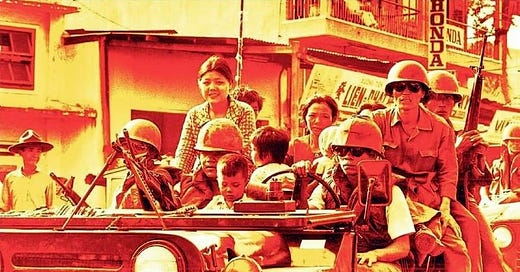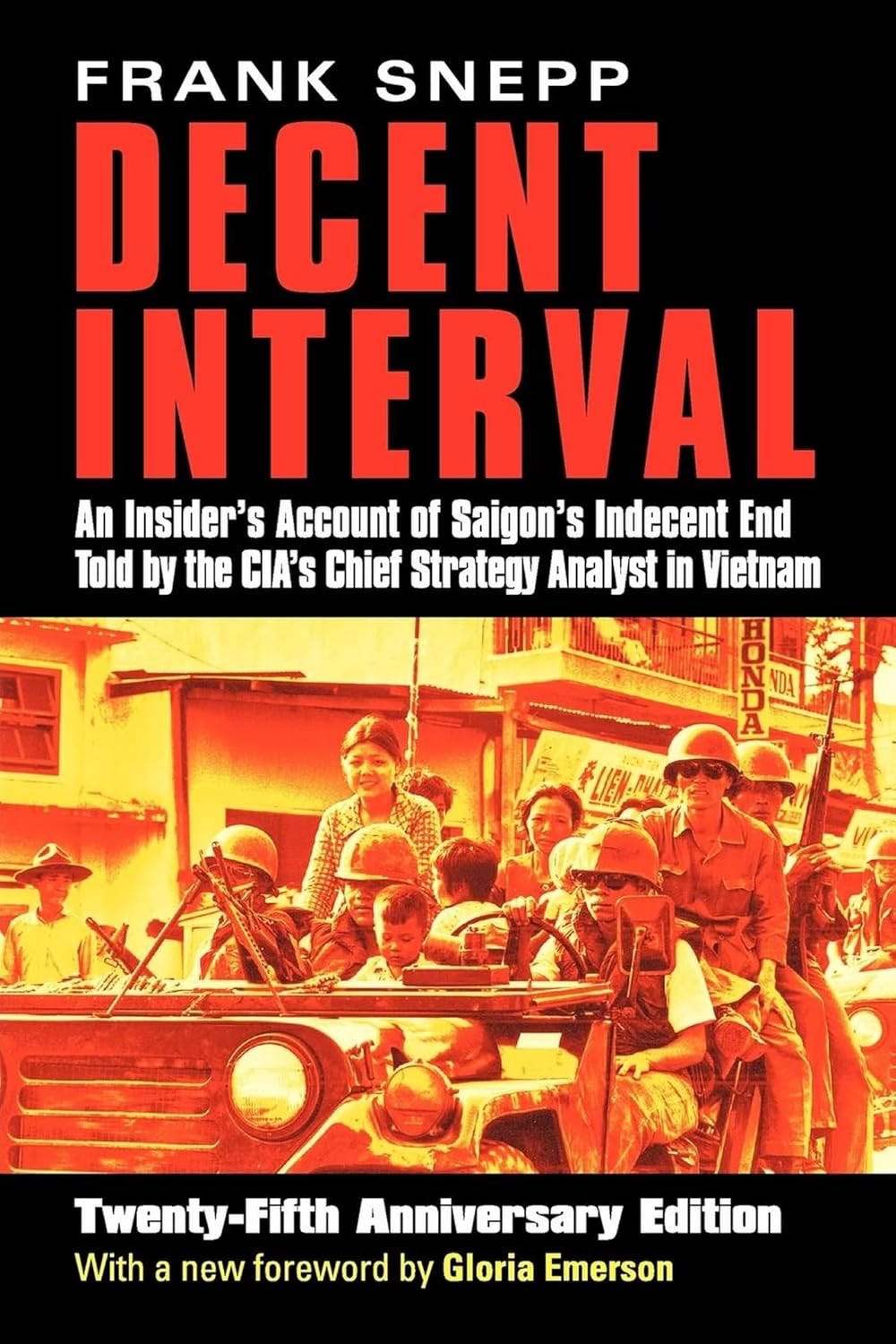I watched the Fall of Saigon unfold while sitting in a junior high classroom. Our teacher wheeled in a television and told us we had to watch.
I doubt most of the kids even registered what they were seeing—but I did.
It was billed as the most humiliating foreign policy disaster in American history.
Now, decades later, the fall of Kabul might share that same grim pedestal. But for me, watching those helicopters swarm like locusts over Saigon, fleeing for the U.S. Navy ships offshore, was unforgettable.
This was the America that had just put men on the moon. The idea that we could lose a war felt insane. Impossible. And yet, there it was.
I had friends and relatives who served in Vietnam. It was the first war that felt personal. Some of friend’s fathers did not come back. My father had run the math on the draft—his odds of being called up were low, but not zero.
Years later, in college, I found a book that remains my top recommendation for anyone trying to understand the full madness of those final days.
Decent Interval by Frank Snepp—the CIA’s top analyst stationed at the U.S. Embassy in Saigon during the final years of the war.
Snepp clearly kept a meticulous diary, despite CIA warnings not to. The agency eventually sued him, not just for exposing their failures, but for bypassing their book review classification process entirely. The book was too honest. Too precise. Too damning.
Everyone should read it. Especially in Taiwan.
Because if the Chinese do come, if the invasion begins, the same chain of denial and dysfunction could unfold all over again.
You can already hear it in casual conversation here:
“It’ll just be a change in management.”
“We’re all Chinese anyway.”
“China needs our economy too much.”
The five stages of grief—denial, anger, bargaining, depression, and acceptance—aren’t just psychological theory. They’re Taiwan’s true national defense strategy.,





